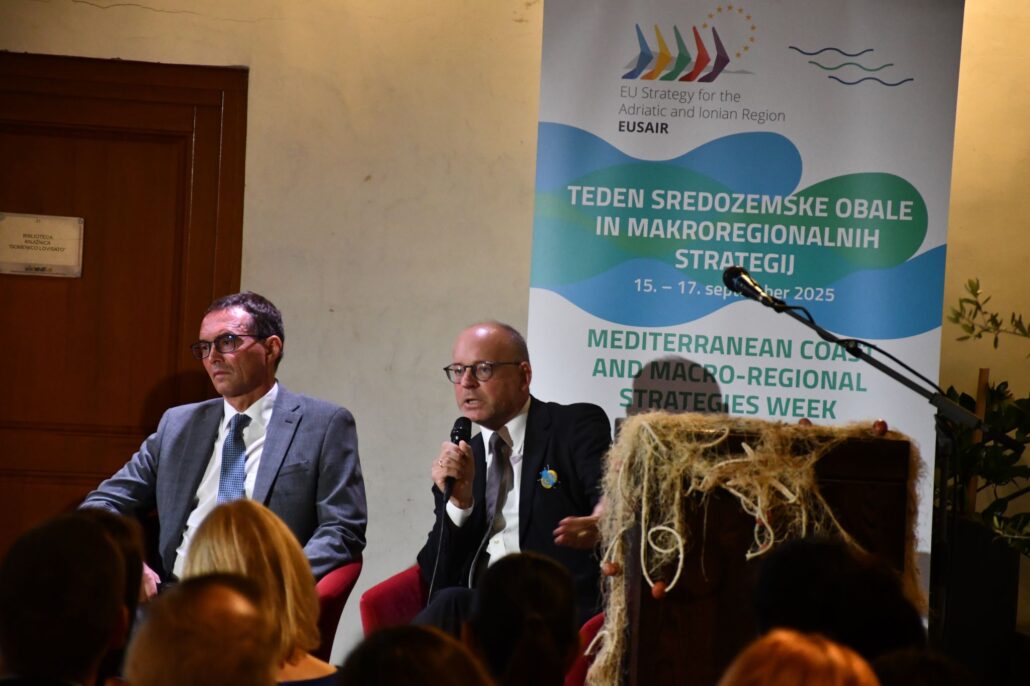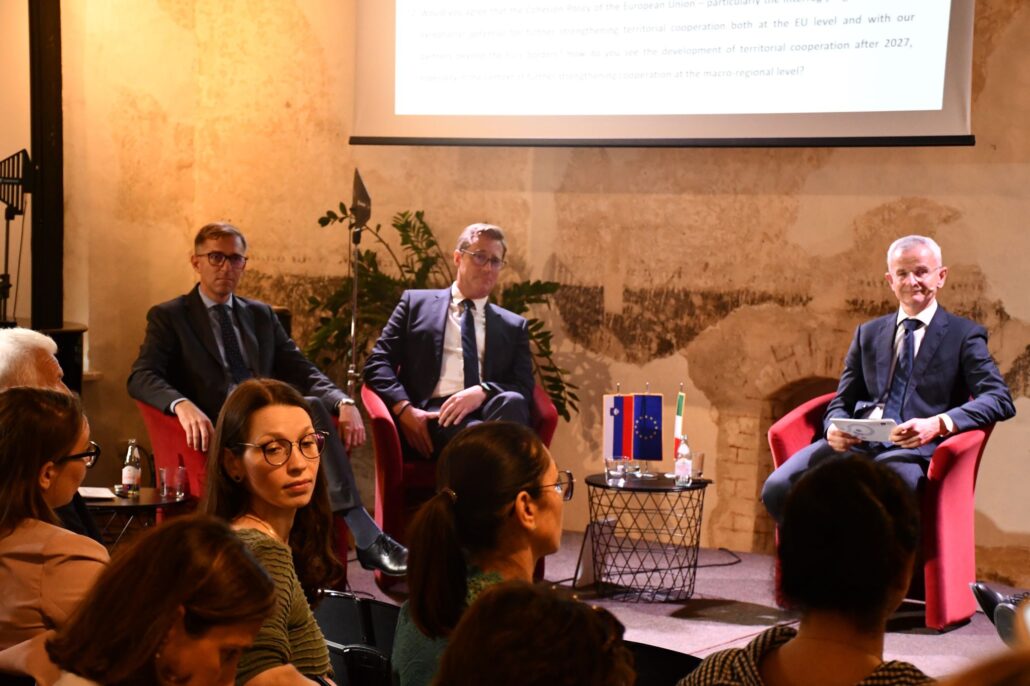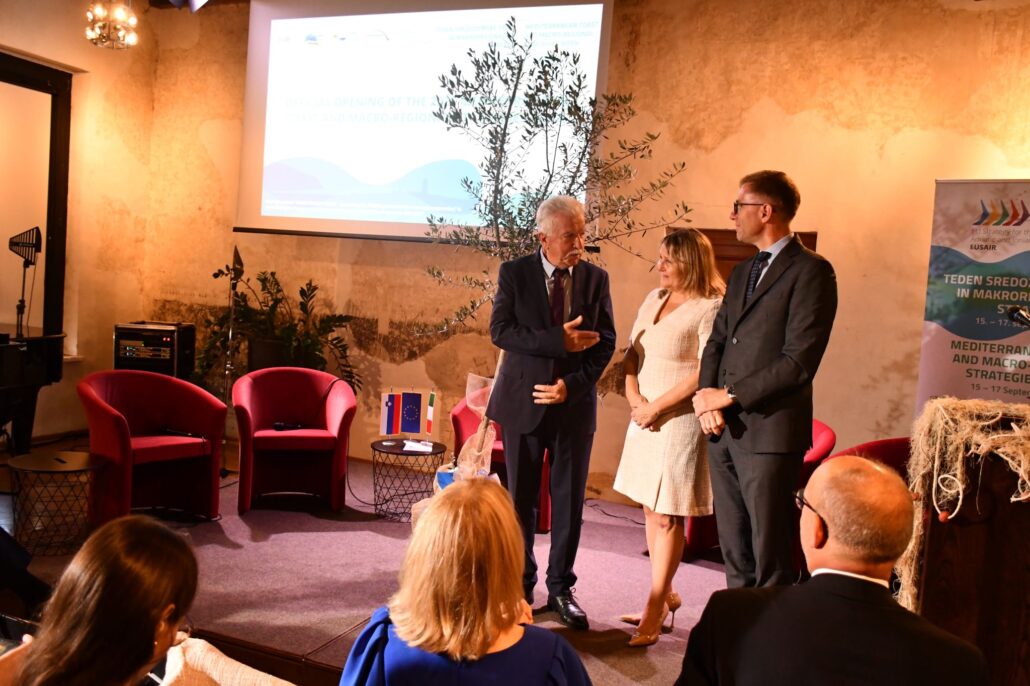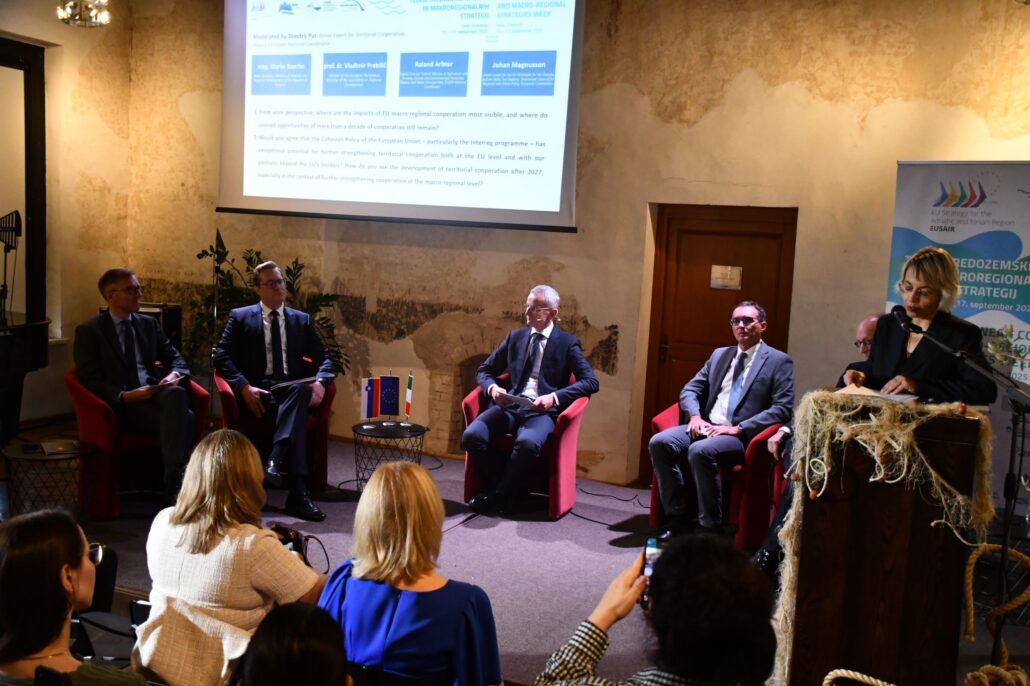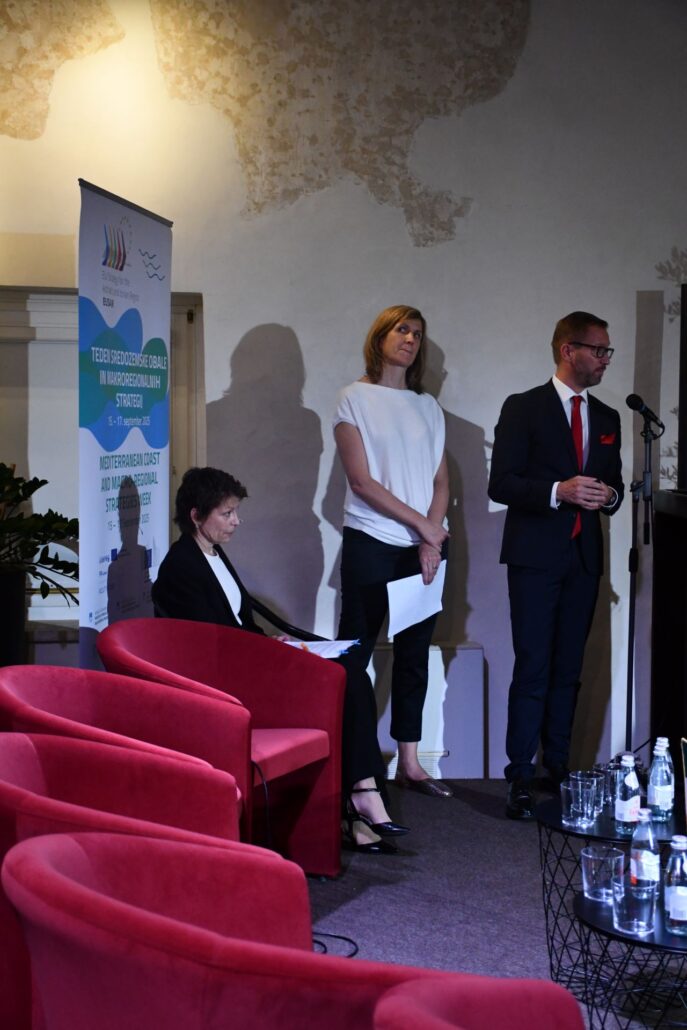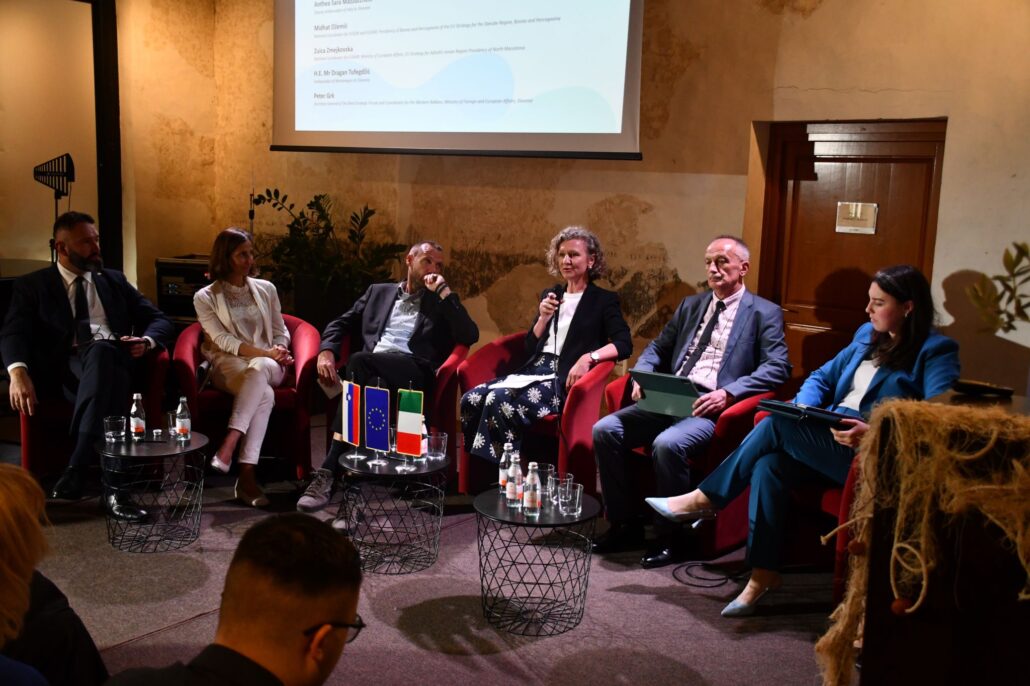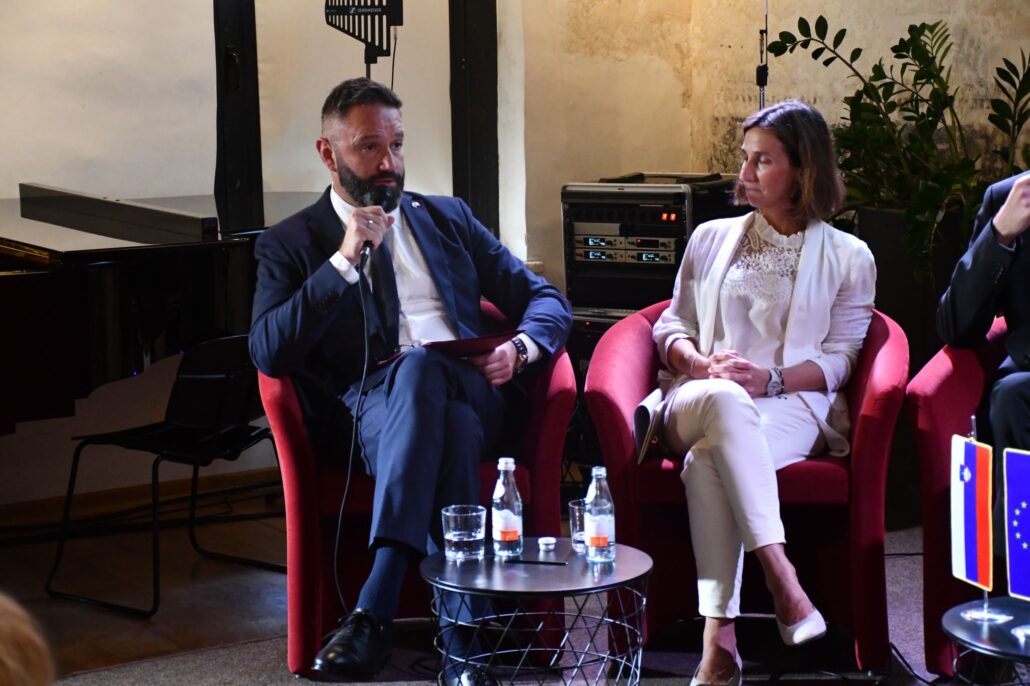Official Opening of the 10th Edition of the Mediterranean Coast and Macro-regional Strategies Week
On the occasion of the Opening ceremony of the 10th Mediterranean Coast and Macro-regional Strategies Week, the 10th Anniversary edition is both a celebration of past achievements and a forward-looking dialogue on future challenges. Over the past decade, the Mediterranean Coast and Macro-Regional Strategies Week has established itself as a vital platform for cooperation, knowledge-sharing, and sustainable action across the Mediterranean region.
To further this cooperation representatives from all four EU macro-regional strategies – Baltic Sea Region, Danube Region, Alpine Region and Adriatic-Ionian Region, join alongside policymakers, experts, academia, civil society, and citizens to raise awareness of sea basins and coasts, as well as the imminent need to balance their economic potential with environmental sustainability.
Mr. Milan Bogatič, Mayor of Municipality Izola, and Ambassador Barbara Žvokelj, Secretary-General, Ministry of Foreign and European Affairs of the Republic of Slovenia at the Opening ceremony emphasised that strategic planning and mutual dialogue are crucial for successfully addressing challenges through coordinated action at local, national, and European levels. And while their results may not be immediately visible or tangible, macro-regional strategies serve as intercessors between EU policies and the needs of European citizens, adding significant value through macro-regional cooperation for both member and candidate countries.
The High-level kick-off panel on the topic of the Cohesion Policy post-2027 included local and international speakers. The European Union’s macro-regional strategies have shown clear impact in strengthening cross-border cooperation, while untapped opportunities remain to further align policies and scale up results. Looking beyond 2027, the Cohesion Policy, particularly through the Interreg programme, holds exceptional potential to deepen territorial cooperation both within the EU and with partners beyond its borders.
A dedicated panel also explored the role of EU Macro-Regional Strategies in supporting the enlargement process. Speakers emphasized that macroregional cooperation adds value by fostering trust, accelerating alignment with the EU acquis, and addressing cross-border challenges collectively. Integrating macro-regional priorities into national policies boosts the impact of EU funds, prevents fragmented investments, and supports coordinated enlargement. Involving stakeholders from candidate countries strengthens their capacities, prepares them for membership, and builds lasting networks for European stability and development.
The youth session highlighted the vital role of youth engagement in shaping Europe’s future. Young entrepreneurs across all four macro-regions face barriers such as limited funding, restricted networks, and insufficient innovation infrastructure. Panelists presented innovative projects, including apps improving financial literacy and motivation, eco-friendly fashion initiatives reconnecting youth with nature, and digital tools simplifying everyday tasks, showing how young innovators tackle real-world challenges while bridging borders and generations. The discussion emphasized that quality of life, education, and security are key to retaining populations, while boosting competitiveness requires private investment, streamlined bureaucracy, and cross-border collaboration. Smarter funding, stronger ecosystems, and meaningful engagement are essential to empower youth and drive Europe’s sustainable growth. With the final meesage being: Let’s build the future together. Bring our EU dream home.
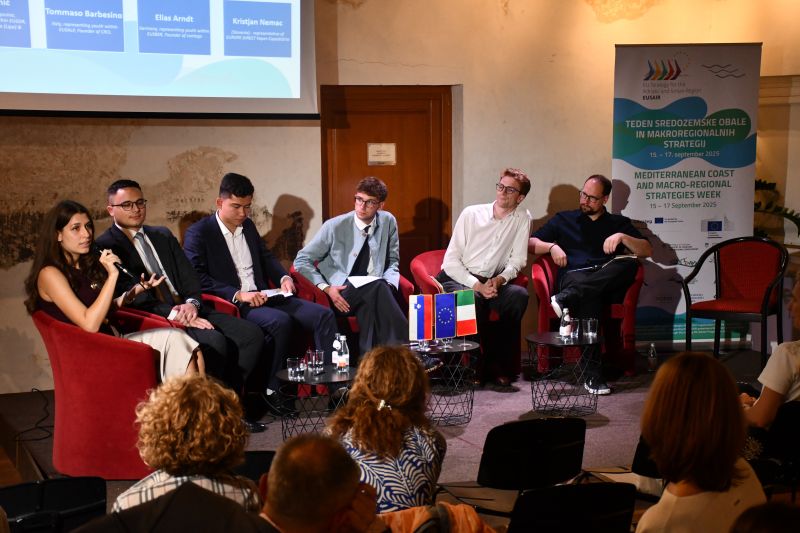
You might be interested in
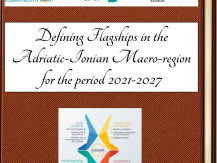
EUSAIR flagships all summed up!

The Hellenic Republic assumes the Presidency of the EU Strategy for the Adriatic and Ionian Region (EUSAIR) (1 June 2024 – 31 May 2025)
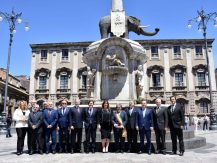
3rd EUSAIR Annual Forum – CATANIA DECLARATION




